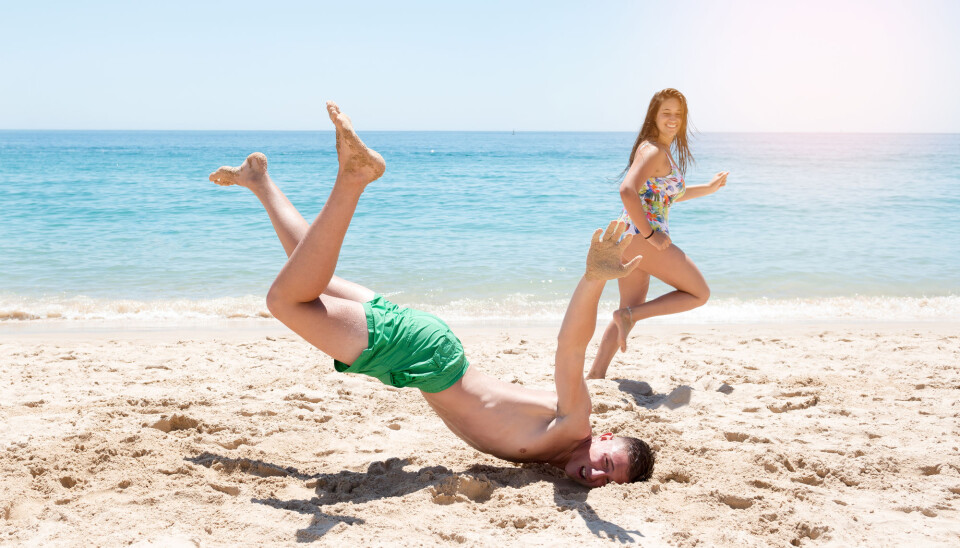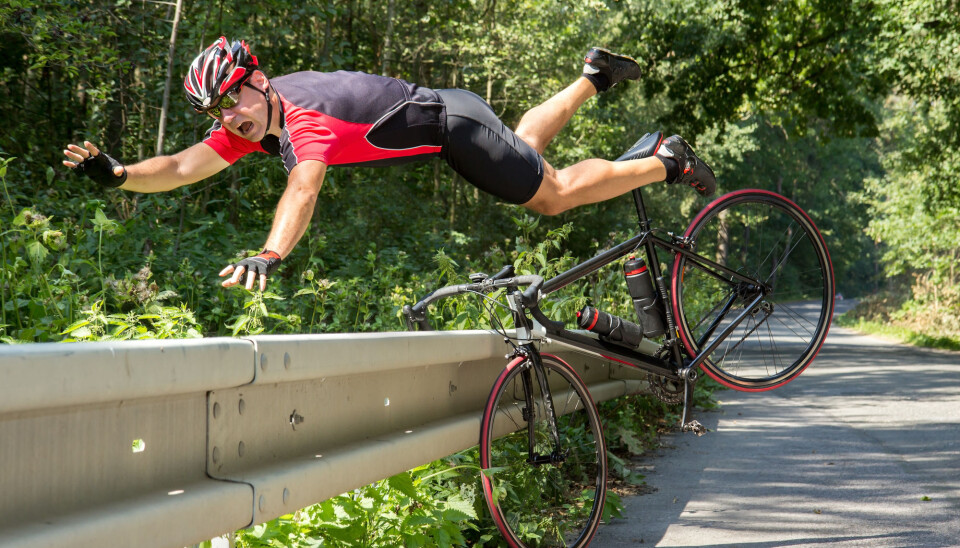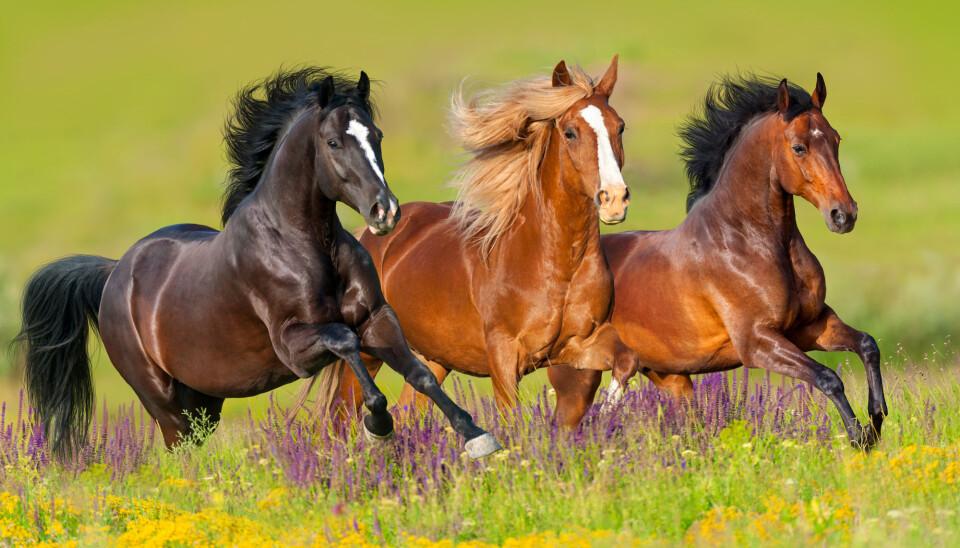
Why are we more concerned about someone seeing us fall on our face than whether it hurt?
ASK A RESEARCHER: Avoiding social pain is often more important than avoiding physical pain, according to psychology researcher.
Maybe you’ve experienced one of these scenarios: you land on your bum on the sidewalk or wipe out as you whiz by someone on the ski slopes. Possibly you were more worried about being seen than whether the fall actually hurt?
Several of this journalist’s colleagues have had that feeling. At lunch, one woman told about the time she went skiing for the first time in a long time:
“I'm on my skis for the first time in 25 years. I head out onto the empty, snow-covered lake in the middle of the woods. And fall flat on my face, knocking the wind out of me. It turned out that I broke two ribs. But the first thing I do is get up, look around and check: did anyone see me? The embarrassment was sharper than the pain.”
Another colleague didn’t accept help when she flew off her bike:
“I cycled onto the street I live on when a two-year-old suddenly dashed into the road. I jammed on the brakes, fell over and rammed my thigh into the handlebar as I fell. The father of the child offered to help me get up, but I refused. I was too embarrassed, and that was stronger than the pain and dizziness from the fall.”
These two women are not alone in experiencing embarrassing falls, according to a survey of 2000 Britons commissioned by the deodorant company Right Guard. Falling in a public place was found to be the most commonly cited embarrassment.
“Terribly embarrassing to be human”
What kinds of psychological processes make us ashamed that someone witnessed our fall? We ask NTNU Professor of Psychology, Leif Edward Ottesen Kennair.
"Well, I haven't researched exactly that," he says, laughing.
“The first thing I usually think about when I get a question like this is whether that’s really how it is. My tendency is to first look accusingly at the ice patch I slipped on.”
Kennair talks in general terms about what people probably feel in those situations.
“People constantly engage in social comparison and competition. We choose friends, lovers and partners based on how we judge others. This evaluation includes a person’s personality, appearance and social status in the group,” he says.
Most people are concerned with how others judge them socially, and worry about being negatively judged.
“That’s why showing signs of weakness and loss of control, coming across as clumsy or helpless and breaking social norms embarrass us. Especially when we think about how others are judging us based on how we appear in these situations,” Kennair says.
“If you think about the main things that we find embarrassing, they’re what everyone else does, too. Everyone stumbles, everyone farts, everyone burps and everyone blushes, but these are the kinds of things that we find so mortifying. I think that just being human is terribly embarrassing for a lot of people,” he says.
“People who are especially pensive, who worry and think too much about these things also tend to become the most socially anxious and can develop social anxiety disorder.”
More important to avoid social pain than physical pain
Thomas Haarklau Kleppestø is a doctoral research fellow in the Department of Psychology at the University of Oslo (UiO). His interests include evolutionary psychology.
He suggests that the reason we worry more about someone seeing our fall than whether we’re hurt is that we often find it more important to avoid social pain than physical pain.
“In fact, brain experiments have shown that social pain activates the same regions of the brain as physical pain does,” Kleppestø says.
Social pain is when you experience uncomfortable feelings like shame and embarrassment. But why do we think it's so embarrassing to fall?
Kleppestø says it may have to do with the fact that we’re generally very keen to appear healthy. We want to signal that we’re in good mental and physical health, and thus show that we can be an attractive friend or partner. Losing control of our motor skills can be associated with getting old or sick.

Resist becoming victim of schadenfreude
Johanna Katarina Blomster is also a doctoral research fellow at UiO’s Department of Psychology and previously wrote her master's thesis on feelings of schadenfreude.
She believes we’re afraid of falling because we don’t want to become a "victim" of schadenfreude. Schadenfreude is when a person takes pleasure in another person’s misfortune.
“This fear is about not wanting to attract attention. You don’t want to be the person being laughed at. Most people who are the target of schadenfreude get embarrassed,” says Blomster.
We also don’t want to appear vulnerable or needy to strangers and are therefore often quick to say that everything’s okay, even if it isn’t.

Embarrassed animals
A band of horses gallop together across a meadow with high knee lifts, and then one hits the ground. Was the horse embarrassed?
How far back in evolution does the feeling of embarrassment go – and can animals even feel embarrassed?
“It’s totally possible for animals to feel embarrassment, and a lot of research is happening on that right now,” says Petter Bøckman, a zoologist and university lecturer at UiO’s Natural History Museum.
“We know that a good number of animals, especially primates, show some of the signs that we recognize as embarrassment. They look down or they cover their faces with their hands when they commit a social blunder. In some cases we can even see that they blush,” he says.
Other animals that are often observed showing embarrassment are dogs and cats.
“Cats that stumble look terribly humiliated. And so do dogs that know they’ve done something wrong and get scolded,” he adds.
Bøckman notes examples of monkeys that run around and around, strut and flaunt themselves – and end up falling flat on their face. “Then all their bravado goes right out of them, and they shrink in embarrassment and disappear,” he says.
The question is whether what we recognize as signs of embarrassment in animals are related to the same feelings that people have when they’re embarrassed.
All cases of embarrassment are about social conditions.
“That means we would only expect to find this feeling in animals having a well-developed and hierarchical social system. That would encompass a relatively narrow group of animals, including monkeys, some pack hunters like lions and wolves, marine mammals, and possibly also social birds like crows.
This dog looks pretty embarrassed.
One of our social instincts
People are quick to attribute feelings to animals that we recognize in ourselves, Bøckman says.
But at the same time, research on animal’s emotional lives is a rapidly developing field.
“We know a lot more about the emotional life of many animal species today than we did just a decade ago,” he says. “We’ve gradually realized that what we think of as animals' instincts, manifests as animal feelings. When you act on instinct, a feeling arises to take a certain action.”
“Embarrassment is a pretty intense feeling, which means this is one of our social instincts. Being embarrassed isn’t a learned reaction, it's something that’s innate in us,” Bøckman says.
Mirror neurons make us feel embarrassed for others
It's also easy to feel embarrassed for other people. Maybe it's a TV show where some of the characters behave so embarrassingly that you want to hide behind a pillow. You may have seen someone on the street with their dress caught in their knickers and felt how embarrassing it was, even if it wasn't you showing your backside.
“It’s perfectly possible to be embarrassed for others. This probably has to do with mirror neurons – a part of our brain that’s designed to recognize the feelings of others and reproduce them. This quality is a prerequisite for being able to live in a group. You have to understand what others in the group feel, and you do that by feeling what they’re feeling,” says Bøckman.
“That's why we can empathize so strongly when others make fools of themselves. By the way, that's also why pornography works. Without mirror neurons, porn would just be someone who’s busy doing something,” he says.
Embarrassment is mostly about situations where you can't uphold a picture of yourself that you want to show the world, says Bøckman.
“When you trip and fall flat or when you burp at the dinner table, you get embarrassed because you want to be better than that. You expect certain behaviours and set a certain standard for yourself,” says Bøckman.
———————






























